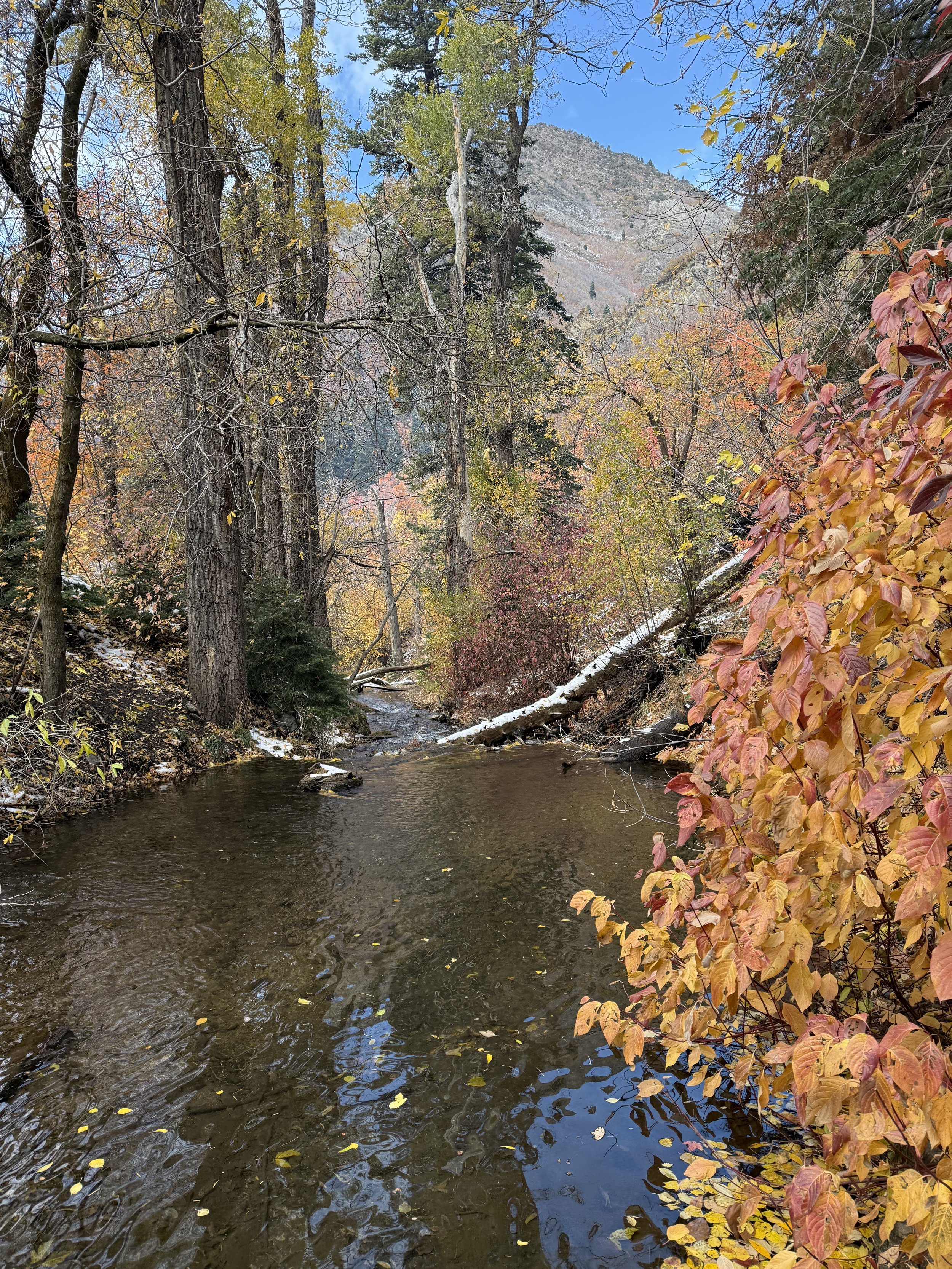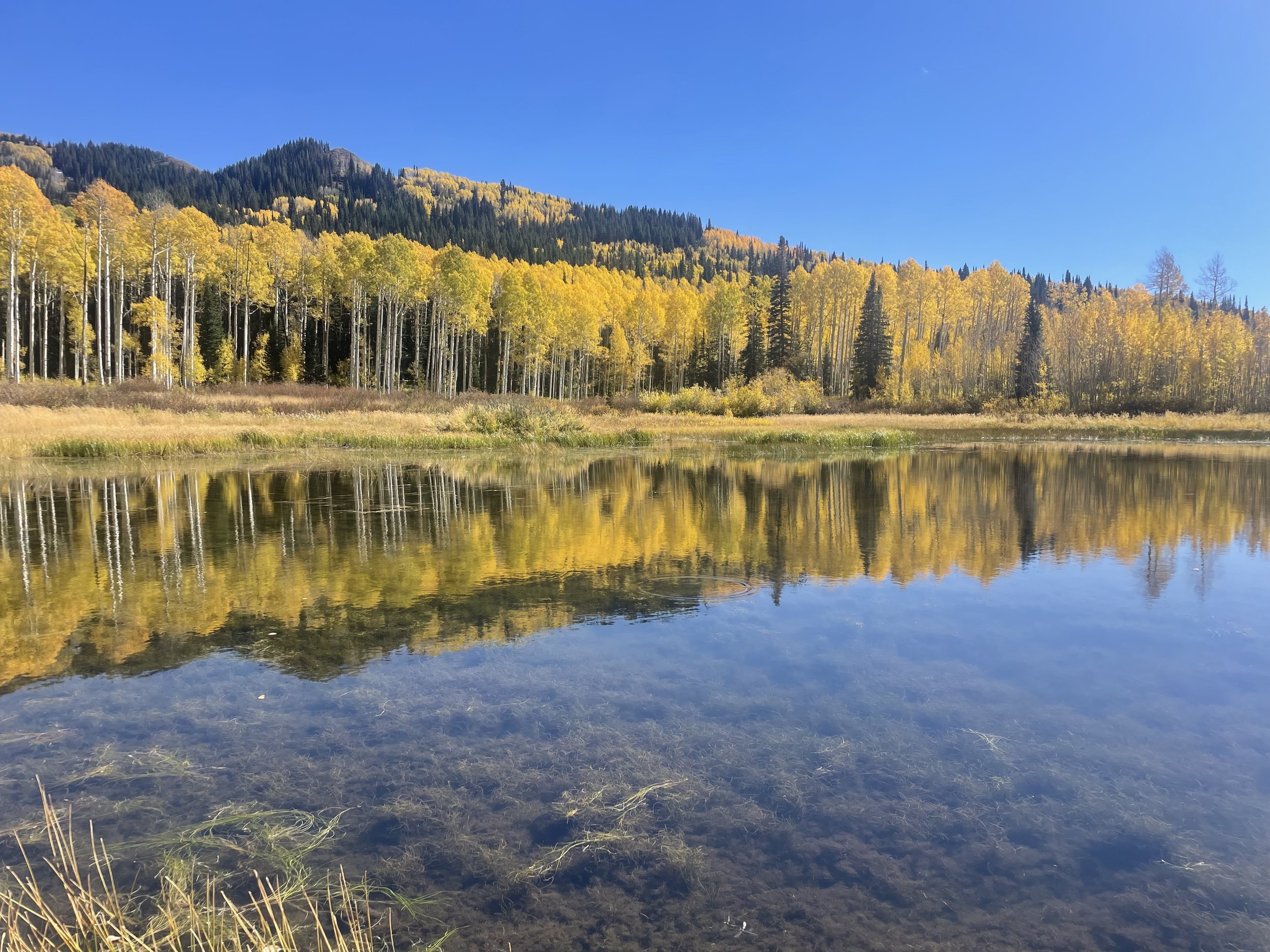Pulse Check
By Ayja Bounous
Written November, 2024.
The day before the 2024 presidential election, I got sick. Fever chills shimmied down my spine, and it felt as though moss had colonized the inside of my throat. For months, I had been feeling hopeful that our country would finally rid itself of this disease that had colonized within our democracy for the past 8 years. I felt more wary in the weeks leading up to the election as predictions placed the two candidates far too close for comfort. In the days before the election, I sat with constant nausea and kept experiencing flashbacks to the 2016 election—flashbacks that I never experienced during the 2020 election. The day before the election, it was as though my body knew what my mind had yet to comprehend—that, without a doubt, Trump would win.
If the shock of the 2016 election felt like a slap across the face, the shock of the 2024 election felt like plunging into cold, dark water. You experience a moment of sharp, world-bending pain in the aftermath of a slap. Then your blood rises to the surface, your survival mechanism kicks in, and you wind up to slap right back. Cue: the women’s march, post-election protests, the rallying cry to rise against what felt utterly wrong. In the weeks after the 2016 election, my female friends wore combat boots, cargo pants, and tied bandanas around their upper arms. We were gearing up for a fight.
The aftermath of this election has felt completely, devastatingly different. The shock of the results was not a sharp pain, it was a crushing void. A horrifying numbness as the icy waters froze our limbs and pulled us down into a murky future. The inability to swim upwards, to save ourselves. In the days following the 2016 election, I felt that there was movement, communication, brightness within the chaos. The days following the 2024 election were full of hollow, stunned silence. Trump had won the popular vote. Our country wanted this. After everything, after all we had lost with him in office, we voted him back in.
Even within my groups of friends and my family, there was silence. No texts flew back and forth saying, “I can’t believe this” or “How do we fight this?” This silence was so much worse than a slap. Couch-ridden with illness, I didn’t feel well enough to leave the house. I didn’t feel like talking to anyone. My only desire was to disengage. I felt like an empty shell without a pulse. It took me an alarmingly long time to realize that I was not okay and that the stretching silence was a sign that others were not okay as well.
I started sending simple text messages to my friends and family. Just that small effort was immense, but it felt cathartic. The text read: Pulse check. How are you?
My phone, so silent the day after the election, was soon deluged with replies. They were painful words to read, and more often than not, I had no adequate response. Sometimes, I could barely manage a one or two-word reply. But sharing our emotions was like rubbing circulation back into numb fingers and toes. There were other pulses out there, however faint and hurting. We were not alone. We weren’t gearing up for a fight—not yet—but we were slowly emerging from the lonely post-election depths.
If you’re like me, this fight will need to start with small acts of resistance. Buy yourself fresh flowers when you’re feeling low. Start a book club with friends and read banned books. Visit an art gallery that features BIPOC artists. Organize a dinner party where everyone writes a letter to their representative. Volunteer with a local nonprofit. Check your friends and family’s pulse. Check your own pulse. Forward momentum, however small, gains energy, becoming a positive feedback system.
This election cycle had horrifying results, there’s no doubt about that. But it’s important to remember that a cycle is a cycle—this is not the end-all. We have the space to move forward. We might feel as though we’re at the bottom of a well right now, but as we battle back up we have the potential to rebuild. Our democracy is in constant ebb and flow. In a way, our societal and political cycles are not so different from the natural world. Cycles are all around us—in the seasons, the tides, the moon phases, the carbon and oxygen cycles, and in our bodies.
As humans, we have natural cycles in our hormones that, if we pay attention to them, can aid in our resistance. As someone with a menstrual cycle, it’s reassuring to know that on the days I struggle getting anything done, there’s often a hormonal reason for it. If you experience a menstrual cycle, I’d encourage you to pay attention to it and act accordingly—if you’re in your follicular phase, call your representatives, write an op-ed, or join a protest. If you’re in your luteal phase, make yourself a cup of tea, read a book, and allow yourself to disengage. If you experience a 24-hour hormonal cycle, execute your acts of resistance in the mornings when testosterone and cortisol levels are high and let yourself relax in the evenings. Checking your pulse will let you determine when you are at your best to participate in our democracy. And don’t discredit the importance of the times when you disengage—it’s often those quiet moments of peace that we’re struck with our best creativity.


